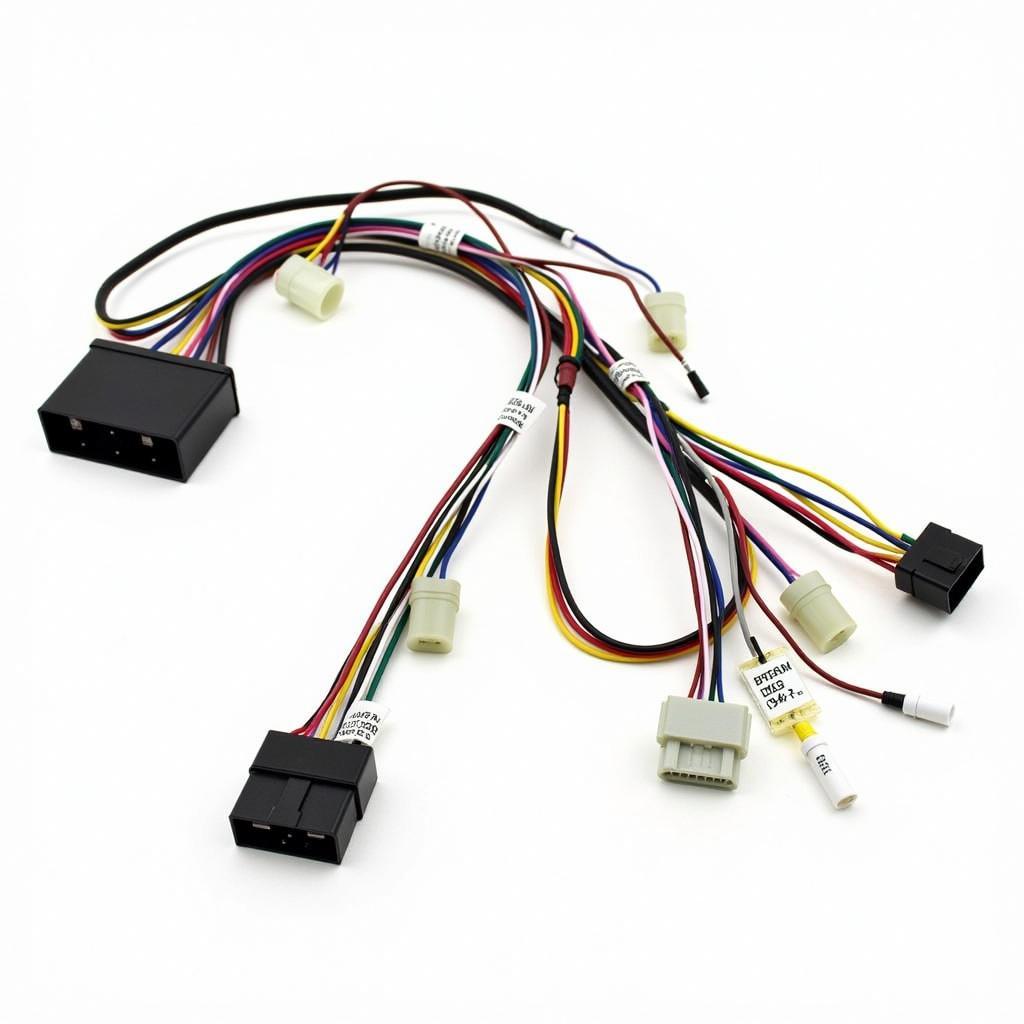The Lincoln Town Car, a symbol of American luxury and comfort, is known for its reliability. However, like any vehicle, it can encounter issues, especially with its complex braking system. One common problem reported by Lincoln Town Car owners is ABS (Anti-lock Braking System) malfunctions. This article will guide you through the common causes, symptoms, diagnostic procedures, and repair solutions for ABS problems in your Lincoln Town Car.
Understanding the Lincoln Town Car ABS System
The ABS system is crucial for maintaining control over your vehicle during braking, especially on slippery surfaces. It works by preventing wheel lock-up, allowing you to steer while braking. The system consists of various components:
- Wheel speed sensors: These sensors monitor the rotational speed of each wheel.
- ABS control module: This unit receives signals from the wheel speed sensors and calculates the braking pressure needed to maintain optimal traction.
- Hydraulic unit: This component applies pressure to the brakes based on the signals from the control module.
- ABS actuator: This device modulates the hydraulic pressure to individual brake calipers, ensuring proper braking force distribution.
When any of these components malfunction, the ABS system may fail to operate properly, leading to various issues.
Common Lincoln Town Car ABS Problems
1. Wheel Speed Sensor Malfunctions
Wheel speed sensors are vulnerable to damage from debris, road salt, or even a simple bump.
Symptoms:
- ABS warning light illuminates.
- ABS system doesn’t function.
- ABS light blinks while driving.
- You feel a pulsating or dragging sensation when braking.
Diagnosis:
- Use a scan tool to check for error codes related to specific wheel speed sensors.
- Visually inspect the sensor wiring and connections for damage or corrosion.
- Test the sensor resistance using a multimeter.
Repair:
- Replace the faulty wheel speed sensor.
- Clean and inspect the sensor wiring and connections.
2. ABS Control Module Failure
The ABS control module is the brain of the system, processing information from the sensors and controlling the hydraulic pressure.
Symptoms:
- ABS warning light illuminates.
- ABS system doesn’t function.
- Various error codes related to the ABS control module.
Diagnosis:
- Use a scan tool to retrieve ABS system error codes.
- Consult the manufacturer’s diagnostic procedures to assess the ABS control module functionality.
Repair:
- Replace the ABS control module.
3. Hydraulic System Problems
The hydraulic system, responsible for applying brake pressure, can develop leaks or component failures.
Symptoms:
- Low brake fluid level.
- Soft brake pedal.
- ABS warning light illuminates.
- ABS system doesn’t function.
Diagnosis:
- Inspect the brake lines and hoses for leaks.
- Check the brake master cylinder for damage or wear.
- Inspect the hydraulic unit for any signs of malfunction.
Repair:
- Repair or replace leaking brake lines and hoses.
- Replace the brake master cylinder if damaged.
- Replace the hydraulic unit if necessary.
4. ABS Actuator Malfunction
The ABS actuator is a vital component responsible for modulating brake pressure.
Symptoms:
- ABS warning light illuminates.
- ABS system doesn’t function.
- Strange noises from the braking system.
Diagnosis:
- Use a scan tool to retrieve ABS error codes related to the actuator.
- Listen for any abnormal noises from the actuator during braking.
Repair:
- Replace the ABS actuator if it malfunctions.
Expert Insights
“Many ABS problems in Lincoln Town Cars are related to faulty wheel speed sensors,” states John Smith, a certified automotive technician with over 20 years of experience. “A simple visual inspection and sensor resistance test can pinpoint the issue.”
“If you suspect a problem with the ABS control module, it’s crucial to consult a qualified technician for a thorough diagnosis,” advises Sarah Johnson, an automotive specialist specializing in electronics. “Replacing the module is a complex procedure requiring specific tools and knowledge.”
Tips for Maintaining Your Lincoln Town Car ABS System
- Regularly inspect your brake fluid level.
- Inspect the brake lines and hoses for leaks.
- Check the brake pads and rotors for wear.
- Avoid driving over debris or rough terrain that can damage sensors.
- Use a scan tool to diagnose any warning lights or errors.
Conclusion
Addressing ABS problems in your Lincoln Town Car is crucial for maintaining safe braking performance. By understanding the common causes, symptoms, and repair solutions discussed in this article, you can proactively address these issues and keep your vehicle safe and reliable. If you encounter any ABS issues, we recommend consulting a qualified automotive technician for diagnosis and repair.
Remember, a properly functioning ABS system is essential for safe driving, especially in challenging conditions.
Contact Us:
Phone: +1 (641) 206-8880
Address: 500 N St Mary’s St, San Antonio, TX 78205, United States
FAQs
1. Can I drive my Lincoln Town Car with an ABS warning light on?
It’s generally not advisable to drive with an ABS warning light on. While your vehicle can still brake, the ABS system won’t function, putting you at risk in slippery conditions.
2. How much does it cost to fix ABS problems in a Lincoln Town Car?
The cost of repair varies depending on the issue. Simple fixes like replacing a wheel speed sensor might be relatively inexpensive, while a faulty ABS control module can be more costly.
3. Is it possible to disable the ABS system in my Lincoln Town Car?
Disabling the ABS system is not recommended and may even be illegal in some regions. The ABS system is designed to improve your safety, and disabling it could put you at risk.
4. How often should I have my Lincoln Town Car’s ABS system inspected?
Regular inspections are crucial for early detection of any issues. It’s recommended to have your ABS system inspected at least once a year or as recommended by your owner’s manual.
5. Can I troubleshoot and repair ABS problems myself?
While some basic troubleshooting can be done independently, complex repairs involving the ABS control module or hydraulic system should be left to qualified technicians.





Leave a Reply